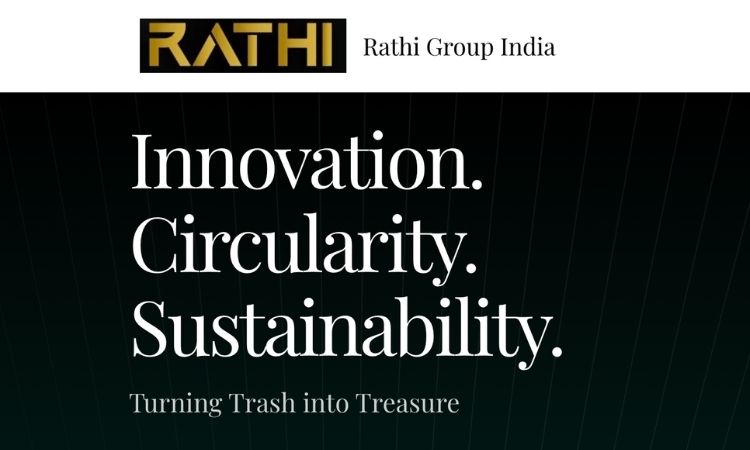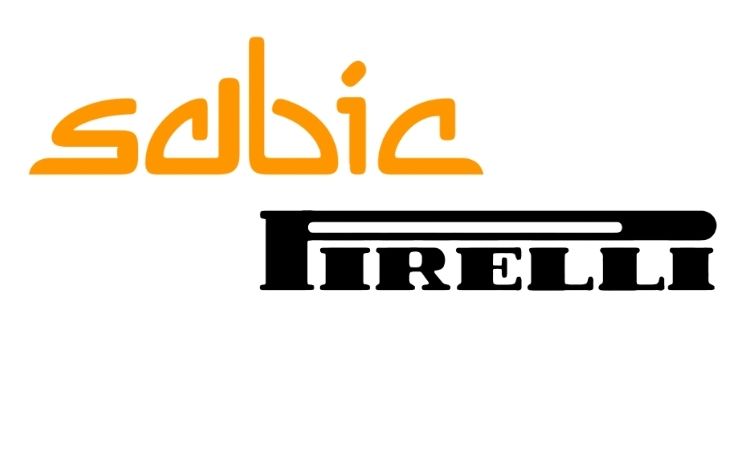Weibold Academy: EU adopts tougher rules on shipment of waste
Weibold Academy article series discusses periodically the practical developments and scientific research findings in the end-of-life tire (ELT) recycling and pyrolysis industry.
These articles are reviews by Claus Lamer – the senior pyrolysis consultant at Weibold. One of the goals of the review is to give entrepreneurs in this industry, project initiators, investors and the public, a better insight into a rapidly growing circular economy. At the same time, this article series should also be a stimulus for discussion.
For the sake of completeness, we would like to emphasize that these articles are no legal advice from Weibold or the author. For legally binding statements, please refer to the responsible authorities and specialist lawyers.
Introduction
The EU Parliament and Council reached a provisional agreement in November 2023 to revise EU waste shipment procedures with the goal of improving environmental and human health protection, while also supporting climate neutrality, circular economy, and zero pollution objectives. The revised Waste Shipment Regulation (WSR) underwent a final vote in a Strasbourg plenary session on February 27, 2024, with 587 in favour, eight against, and 33 abstentions. Find more information about the development of this regulation here.
EU Parliament enacted crucial amendments to Waste Shipment Regulation
The European Parliament has approved key revisions to the Waste Shipment Regulation (WSR), signalling a major stride in enhancing environmental protection and advancing circular economy goals within the EU.
The amendments prioritize establishing Union-level rules to safeguard the environment and human health during waste shipment, while also promoting sustainable waste management practices in line with EU directives. Aligned with the European Green Deal and Circular Economy Action Plan, the new WSR facilitate waste shipments for reuse and recycling within the EU, reducing reliance on third countries and fostering domestic recycling capacities.
Additionally, the revised regulation emphasizes fostering research and innovation in the waste management sector, promoting collaboration between industry, academia, and research institutions, prioritizing principles such as proximity, material efficiency, and environmental footprint reduction in waste shipment, furthering the EU's transition towards a circular economy model.
By providing legal certainty and minimizing administrative burdens, especially for small and medium-sized enterprises, the EU Parliament herewith reaffirmed its commitment to sustainable waste management practices and environmental stewardship.
Environmental Standards in Waste Shipment
The amended Waste Shipment Regulation refers to Annex IX Part 2 for the definition of environmentally sound waste management, and outlines requirements for ensuring such management during shipments:
- Waste producers, notifiers, and parties involved in waste transport, recovery, or disposal must ensure that waste is managed in a manner that safeguards human health and the environment throughout the entire process.
- For waste exports, waste will be deemed environmentally soundly managed if it can be shown that the destination country's standards for human health and environmental protection are broadly equivalent to those of the EU. While full compliance with EU legislation is not mandatory, evidence must demonstrate that the destination country's regulations offer a comparable level of protection.
No export of waste to unlisted non-OECD countries
The new Waste Shipment Regulation (WSR) prohibits the export of certain non-hazardous waste (including end-of-life tires) from the EU to countries not covered by the OECD Decision for recovery purposes, thus excluding non-OECD member countries like India. The Commission is empowered to establish a list of countries authorized to receive non-hazardous waste exports from the EU for recovery. This list must be created within 30 months after the Regulation's entry into force, and the Commission will engage with non-OECD countries to inform them about the opportunity for inclusion. Non-OECD countries interested in being included must submit requests within nine months of the Regulation's entry into force.
The WSR outlines requirements for non-OECD countries seeking inclusion in the authorized list for waste exports. This includes submitting a request to the Commission, providing comprehensive documentation in English, and demonstrating measures for environmentally sound waste management, such as having a waste management strategy, legal framework, membership in environmental agreements, and an enforcement strategy. If requirements are met, the country is included; otherwise, the country is given an opportunity to provide additional information.
Listed countries must provide regular compliance updates, and the Commission can remove countries that fail to meet requirements. Additionally, the Commission can request information from listed countries to ensure ongoing compliance, with non-compliant countries subject to removal from the list.
Monitoring waste exports to OECD countries
The European Union has implemented robust monitoring and safeguard measures for waste exports to OECD countries to ensuring responsible waste management practices and safeguarding environmental and human health standards in waste export processes:
Monitoring Export Levels: The European Commission is tasked with overseeing waste exports to OECD countries to prevent significant environmental or human health damage. Citizens as well as governmental or commercial entities can request this monitoring by providing relevant evidence.
Increased Export with Insufficient Evidence: Should there be a notable surge in waste exports to an OECD nation without adequate evidence of its environmental management capabilities, the Commission will request information from the country's authorities within a 60-day period.
Verification Requirements: This request aims to verify the country's legal frameworks for waste import and management, its capacity to handle increased waste volume in an environmentally sound manner, strategies to mitigate negative impacts, and enforcement measures against illegal shipments.
Delegated Acts and Prohibition: Failure to provide adequate evidence of environmentally sound waste management could prompt the Commission to adopt delegated acts, prohibiting waste exports to the concerned country. The prohibition is lifted once sufficient evidence of compliance is obtained.
Impacts of the revised Waste Shipment Regulations
The revised and amended Waste Shipment Regulation (WSR) is anticipated to have various economic, environmental, and social impacts:
Economic impacts:
- The establishment of an electronic data interchange system is expected to save costs
- Measures related to waste export could generate an overall economic gain for the EU ranging up to hundreds of millions of Euros annually, depending on the amount of waste retained within the EU.
- Economic operators exporting waste may face increased costs or seek alternative markets within the EU, potentially affecting their profitability.
- On the other hand, EU-based operators involved in recycling or processing waste may benefit from increased access to lower cost feedstock.
- Small and medium-sized enterprises (SMEs) will benefit from streamlined waste shipment procedures, with opportunities to pool audit costs and develop innovative waste recycling projects.
Environmental Impacts:
- Facilitation of waste shipment for re-use and recycling within the EU is expected to improve environmental conditions and increase the availability of secondary materials.
- Measures to ensure environmentally sound management of waste exports could potentially retain million tonnes of waste within the EU annually, leading to reduced environmental impacts and savings ranging from EUR 250 to 650 million per year.
- Enhanced enforcement against illegal waste shipments is anticipated to prevent serious environmental damage.
Social Impacts:
- Measures related to waste export and illegal shipment prevention are expected to reduce negative impacts on human health and labor conditions associated with unsustainable waste management practices, benefiting both EU and third-country societies.
- Increased waste treatment within the EU could create thousands of jobs in recycling and re-use sectors, while job losses may occur in third countries reliant on waste imports.
Conclusion
In November 2023, the EU Parliament and Council reached a provisional agreement to revise the Waste Shipment Regulation (WSR) with aims to improve environmental and human health protection, support climate neutrality, circular economy, and zero pollution objectives. The final vote for the revised regulation occurred on February 27, 2024, with overwhelming support.
Key revisions prioritize establishing Union-level rules to safeguard the environment and human health during waste shipment, promoting sustainable waste management practices, and fostering research and innovation. The amended regulation emphasizes proximity, material efficiency, and reducing environmental footprints in waste shipment to transition towards a circular economy model.
The revised regulation includes stringent environmental standards for waste management during shipments, prohibiting exports to non-OECD countries unless they meet specific criteria for environmentally sound waste management. Monitoring and safeguard measures are implemented for waste exports to OECD countries to ensure responsible waste management practices.
Anticipated economic impacts include cost savings through an electronic data interchange system, potential economic gains for the EU from retained waste, and benefits for EU-based operators involved in recycling. Environmental impacts include improved environmental conditions, increased availability of secondary materials, and reduced environmental impacts and savings from retained waste within the EU. Social impacts include reduced negative impacts on human health and labor conditions and potential job creation in recycling and re-use sectors within the EU.
Overall, the revised WSR is expected to significantly enhance environmental protection, advance circular economy goals, and promote sustainable waste management practices within the EU and beyond.
Weibold is an international consulting company specializing exclusively in end-of-life tire recycling and pyrolysis. Since 1999, we have helped companies grow and build profitable businesses.









